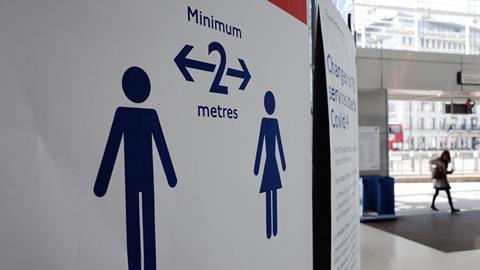As we emerge from lockdown, with shops now due to open from mid-June, it is beginning to be clearer what our life will be like, including in the courts and other public institutions with which we interact.

Mainstream newspapers are now beginning to devote articles to the new look of reopened justice: how will we cope with the enormous backlog of criminal cases, made worse by the lockdown – will Nightingale courts be introduced to cope; will our system be able to handle the predicted huge rise in the number of bankruptcy cases, and will there be many cases against the government for the physical and economic suffering caused by the lockdown; and how much of what has been transferred during lockdown to the virtual domain will remain there, and how much will return to in-person transactions?
Lawyers in some areas of practice - crime and wills, for instance - have faced risks to their health in continuing to work during lockdown. We clap for health workers and carers, supermarket workers and lorry drivers, postal workers and the police. But we should also be clapping for those in the justice system, for instance those who continue to appear in courts and police stations, and those required to continue with the outdated witnessing provision of the Wills Act 1837.
Soon courts will begin returning to some form of normality. The Council of Bars and Law Societies of Europe (CCBE) has recently published a statement on ‘the reactivation of justice in Europe’. It complained (in Euro-English) that:
‘Judiciaries cancelled and postponed numerous cases and proceedings. Access to justice and human rights have been suspended or stopped. The rights of citizens to due process within a reasonable time, a fundamental right enshrined in several constitutional and international texts (e.g. art 6 ECHR and art 47 EU Charter Fundamental Rights) have been interrupted … The Judiciary must be reactivated immediately in phase I of every deconfinement strategy, to the greatest extent possible, to allow citizens and entities regain full access to justice and to legal certainty.’
Our Courts and Tribunals Service (HMCTS) has just published its risk assessment tool, which makes clear how courts will operate in future.
Some of it is obvious, and operates in other places that we now visit, such as:
- a two-metre-apart queueing system to enter the court, with spaces marked on the floor – and the same, as appropriate, to enter lifts inside, or toilets, or to approach the reception desk;
- users will have to confirm that they do not have coronavirus symptoms;
- bags will be searched within social distancing rules by emptying the contents into a tray, which will be cleaned afterwards;
- when hand-held detectors are used, the user will be informed that the two metre distance is being breached and asked to look away from the security guard to avoid face-to-face contact;
- thorough and regular cleaning, including cleaners returning at frequent intervals to common touch points such as lift buttons;
- soap and hand drying facilities available, and easily located.
But there are other parts of the guidance which are more specific to justice:
- the judiciary will announce regular hand-washing breaks during hearings;
- no books or laminated sheets for oaths – the wording will be read out and then repeated;
- the discretion on the use of face covering in a courtroom is a judicial one;
- all refreshment facilities and canteens will remain closed.
The Court of Justice of the European Union (CJEU) – to cite just one other court, for the purpose of comparison – has also recently published its own guidance on this front. These are in accordance with Luxembourg health requirements, and they differ from our own in that:
- a temperature check will be carried out at a distance on entering (persons with a temperature higher than 38°C will not be permitted to enter);
- users must sign a declaration stating that they have not been a carrier of Covid-19 during the preceding two weeks and that, to their knowledge, they have not been in contact, during the same period, with anyone suffering from Covid-19;
- masks must be worn at all times when moving around the building, and elsewhere where it is not possible to keep a 2 metre distance;
- a limited restaurant service (in the nature of sandwiches and drinks) will be provided;
- if you have not brought your own gown, the Court can allow representatives to plead without a gown;
- where one microphone must be used by several people, it will be cleaned and disinfected after each intervention.
This will be our working environment from now in many different settings. It is difficult not to look back with strong nostalgia to our lives just a few short months ago, and to wonder when it will be possible to return to being so carefree.
Jonathan Goldsmith is Law Society Council member for EU matters and a former secretary general of the Council of Bars and Law Societies of Europe
All views expressed are personal and do not necessarily reflect the views of the Law Society Council
































No comments yet